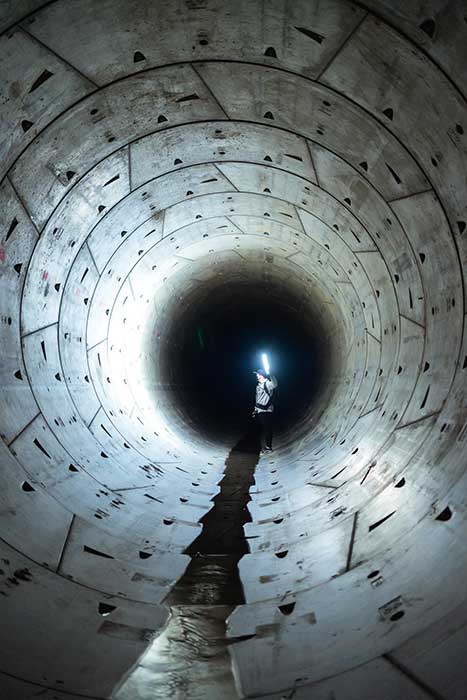Optimised planning for infrastructure asset management
3 mins to read
Water engineering experts at the University of Exeter have helped achieve significant savings for water companies and increased affordability and high levels of service to UK water customers.
The team, led by Professor Dragan Savic, have worked on several projects in the last 20 years including, water supply infrastructure and sewer system management and whole-life cost analysis.
With limited resources to work with, being restricted on how much they can charge customers by Ofwat, water and sewerage companies in the UK rely on assets serving a useful life, with minimal or no intervention, in excess of 100 years.
The team developed a decision-support tool that links two separate systems to better focus the resources that water companies do have. ‘Asset cost’ and ‘network performance’ frameworks were brought together to see where the system bottlenecks and expenses laid and how savings and efficiencies could be made.
Following this initial research, a spin-out company, SEAMS Ltd, was developed to exploit this support tool aimed at making informed decisions about management and planning of urban water and wastewater systems.
The team then worked on a few projects, between 2002-2006, they explore implications of the expansion of water supply infrastructure and between 2003-2005, they worked on the whole-life cost management methodology for sewer systems. Later, in 2009-2011, Professor Savic and co. worked on risk-based design of water distribution infrastructure under uncertainty and most recently human-computer optimisation for water systems planning and management between 2017-2020.
All of the research by the team is aimed at promoting the efficient use of resources through making best use of existing infrastructure thereby extending the useful life of assets


They developed a machine learning process which could predict the consequences of deterioration and interventions on water loss, water quality, supply interruptions and asset condition. They also created an activity-based economic model that reflects the cost of an asset, including the interventions on the asset over its entire life and the quality of service received by the customer. Finally, they linked the two systems in an algorithm which looked at both the short-term and long-term spend to reach a ‘whole-life cost’.
The new analytic and software systems have provided support on investment decisions in the water engineering sector for companies and consultants. The spin-out company also diversified these systems to work for transport, energy and other vital sectors.
Their systems lead to large savings for companies in efficiency; better regulatory settlement and regulatory incentives; improved customer service; and reduction in data intensive planning.
Not only has this saving been passed onto the companies but has also had a large impact on the UK economy through the reducing the rate which bills increase and maintaining customer bills between 2020 and 2025. Reducing costs with these systems have also lead to a higher satisfaction rating from consumers and also a notable higher levels of service.
The research from Professor Savic and colleagues at the University of Exeter has helped to support the water industry in deciding when and where to spend on assets, both new and for maintenance of existing assets. The work has also achieved significant savings in capital and operational costs to water company clients and delivered social impact through improved customer satisfaction, increased affordability and high levels of service to UK water customers.
Professor Dragan Savic, from the Centre for Water Systems at the University of Exeter, speaks about his research.
Meet our researchers

Professor Dragan Savic
Professor of Hydroinformatics
Overview:
Research interests cover the interdisciplinary field of Hydroinformatics, which transcends traditional boundaries of water/ environmental science and engineering, informatics/ computer science (including Artificial Intelligence, data mining and optimisation techniques) and environmental engineering. Applications are generally in the environmental engineering/science areas, including water resources management (both quality and quantity), flood management, water & wastewater systems and environmental protection & management.



